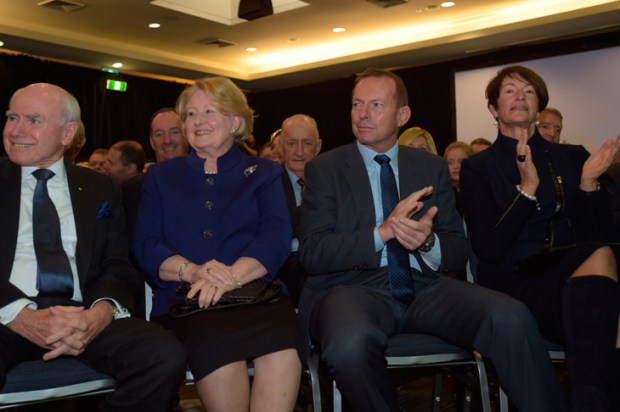Self-indulgent race discrimination commissioner
African American is not an accurate descriptor of Americans of Negro racial origin. North Africans, for example, are not grouped into a ‘pan-African race’ along with Sub-Saharan Africans. Ethiopians, for example, are considered sometimes Caucasian and sometimes Negro. Difference between peoples, the sort of thing that race discrimination commissioners take offence at on behalf of others, is as or even sharper, once ethnicity is taken into account. From Mauritania in the west to Somalia in the east the dominant peoples of northern Africa are described as of semitic-hamitic ethnicity. There are, in addition, significant Malay-Polynesian populations in the northeast and Afrikaners in the south of Africa. Indeed, there are upwards of 116 distinct racial and ethnic groups in the continent of Africa. There are 24 ethnic groups that number 10 million or more. While the source of slaves from Africa was confined to only some regions, and keeping in mind that many black Africans were themselves slave traders, African American just doesn’t represent the Americans it purports to. It has always been code for black or Negro Americans. I understand that the term is used to avoid offense. But, if racial prejudice is based on race, the most obvious part of which is appearance, how does not mentioning its most familiar and obvious descriptors stop prejudice? William Wilberforce through to Martin Luther King Jnr used the term Negro in an unambiguous way to identify the oppressed people they strived to help. They undertook the significant, dangerous and heroic work against racial prejudice, the most egregious example of which was the slave trade. Of course, slavery was a feature of every continent and every race at some time; the American/British and African trade was not alone in history. And yet, so many generations later, after the great struggle for racial equality in the West has been won, effete discrimination commissioners have become shadows of earlier warriors, mere enforcers of fashionable language.
The 2UE interview
Senator Eric Abetz used the term Negro-American in a recent interview with Justin Smith of radio 2UE. The interview was about Abetz’s stance on gay marriage. Like too many interviewers, Smith thought that the interview was about him, not the interviewee. Smith lauds ‘marriage equality’. Smith’s interview was designed to display his moral superiority to that of Abetz. It failed. Abetz remained calm and dignified throughout the 24-minute interview, but at fully 17 minutes in, when Smith accused Abetz of being a laughing stock, Smith raised the issue of whether Abetz’s views on gay marriage found a parallel in racial discrimination against Asians. Abetz reiterated a point made by Chief Justice Clarence Thomas of the Supreme Court of the United States in a minority view on gay marriage. Abetz declared in passing that Thomas as a negro American knew all about minorities and was aghast at his fellow judges for their views which would be inimical to the freedoms and rights of those who held beliefs that marriage was a heterosexual institution.
Enter the Commissioner
Right on cue, race discrimination commissioner Tim Soutphommasane condemned the use of the term Negro, saying it was ‘disappointing’ that such language would be used in public debate.
‘Most fair-minded people would recognise that “Negro” is an outdated term that is inappropriate and racially loaded,’ he was quoted as saying. ‘The modern reality of racism,’ according to Soutphommasane, is that ‘you can cause harm, even if you don’t intend to cause harm or even if you’re not motivated by malice… Sometimes racism is the product of ignorance and isn’t necessarily motivated by hatred.’ It follows that Soutphommasane believes that Abetz is ignorant and/or motivated by hate. Patently, neither is true. Since when does this puppet of politeness have the right to tell anyone what is outdated? It was not a racial slur, nor an offence to many African Americans. Soutphommasane is clearly unaware that the greatest slave traders were Africans, and that the greatest intervention to stop the trade was by white Englishmen, who talked of Negro slaves. The language has changed, but when the real work of securing the rights of races was being done, the word was Negro. Given that race remains a major problem, albeit as a legacy of previous prejudices, why deny the very foundation of the problem?
Amend 18c and put him out of business
Soutphommasane goes beyond his brief: beyond the mere mealy-mouthed ‘offend’ and ‘insult’ to simply ‘outdated’. The commissioner has used his position to exert his power over free speech, to close it down, to help his preferred minority; gays who (wrongly) assert equal treatment, while ignoring another, opponents of gay marriage. Like many commissioners before him, he seeks to extend his power. The electorate will ultimately decide gay marriage. Soutphommasane and the politicians who conflate equal rights with cultural mores may be surprised at the result. It will be a rough ride, however, if the likes of Smith and Soutphommasane are anything to go by. The moderate reform to section 18C of the Racial Discrimination Act, in which Senators Bob Day, Cori Bernardi, Dean Smith and others propose removing the words ‘offend’ and ‘insult’ is essential to put the language fascists out of business.
Got something to add? Join the discussion and comment below.
Get 10 issues for just $10
Subscribe to The Spectator Australia today for the next 10 magazine issues, plus full online access, for just $10.













Comments
Don't miss out
Join the conversation with other Spectator Australia readers. Subscribe to leave a comment.
SUBSCRIBEAlready a subscriber? Log in